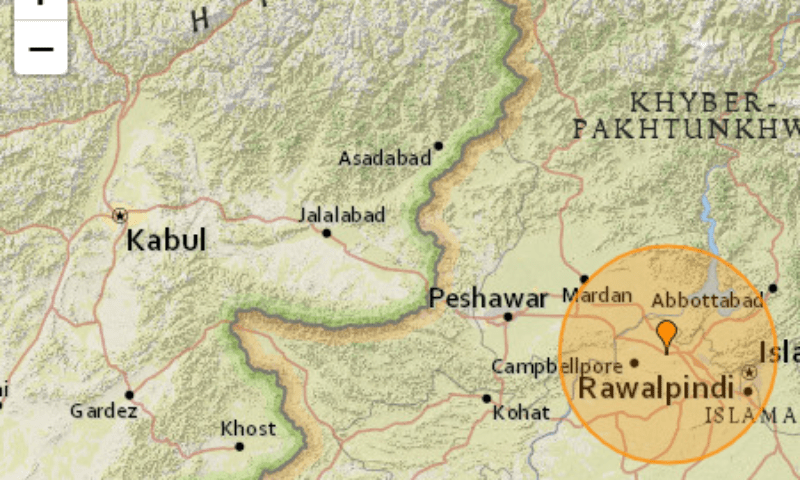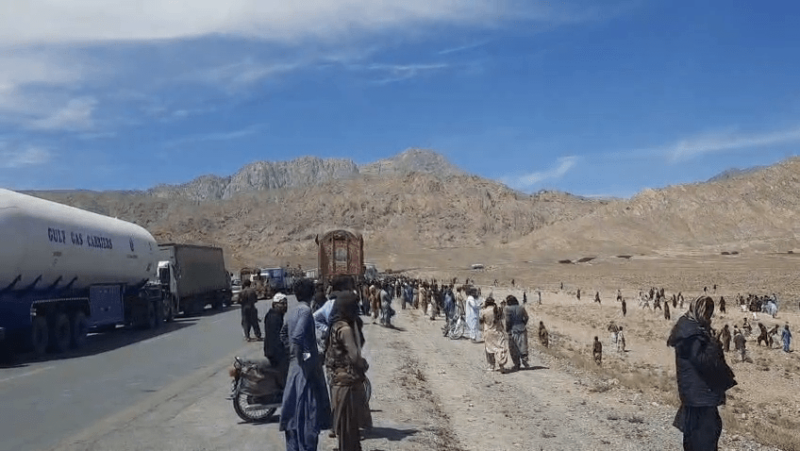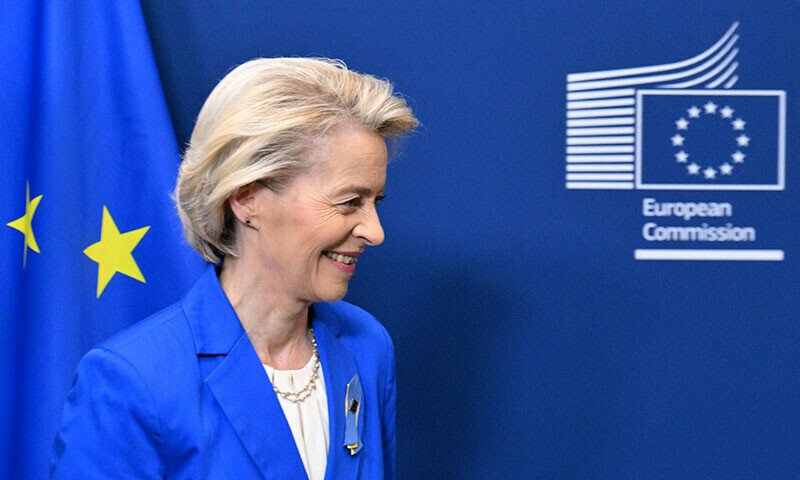A 5.5-magnitude earthquake struck near Islamabad and Rawalpindi on Saturday afternoon, while tremors were also felt in Khyber Pakhtunkhwa from another earlier quake.
The earthquake in Pakistan measured 5.5 on the Richter scale and occurred at 12:30pm, according to the National Seismic Monitoring Centre (NSMC). It further said the quake struck at a depth of 12 kilometres, with its epicentre located 60km northwest of Rawalpindi.
However, according to the United States Geological Survey, the quake measured 5.0 on the Richter scale and had a depth of 39.2km.
There were no immediate reports of any damages from the earthquake.
A DawnNewsTV correspondent in Islamabad reported that people gathered outside buildings after experiencing the tremors.
Meanwhile, a separate 4.3-magnitude earthquake also jolted the Afghanistan-Tajikistan border region about 35 minutes earlier, the NSMC said.
It added that the 11:54am quake had an epicentre with a depth of 88km.
Parts of KP — including Shangla, Swat, Mardan, Abbottabad, Haripur, Mansehra and Kohistan — felt the tremors of that quake, according to a Dawn.com correspondent who noted that jolts in KP and Islamabad were felt at different times.

Later, a DawnNewsTV correspondent in Peshawar also reported that various cities of KP were shook following the 5.5-magnitude quake.
Jolts were also felt in KP’s Hazara division and Swabi district, according to another Dawn.com correspondent.
The Afghanistan-Tajikistan border region also experienced a 3.8-magnitude jolt at 11:26am, with a depth of 109km, the NSMC stated.
Pakistan witnessed around 20 low-intensity earthquakes in the first half of February — an average of more than one tremor each day.
However, experts had pointed out that such minor seismic activities “preempt” high-intensity earthquakes by constantly releasing accumulated energy within the tectonic plates.
Pakistan falls on three major tectonic plates — the Arabian, Euro-Asian and Indian — according to geological engineer Muhammad Rehan, creating five seismic zones within the country.
Additional input from Humayun Baber




